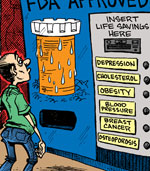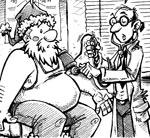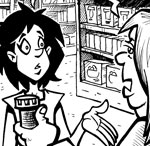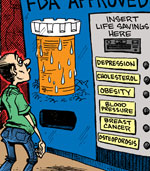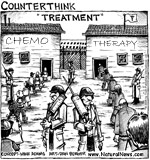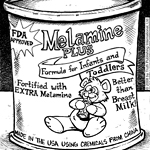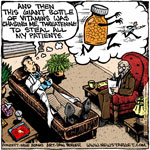What are Good Food Sources of Zinc?
| Share on Facebook | Share on Twitter | Share on Google+ |
Zinc is one of the most important minerals used by the body for various functions and fortunately, there is a wide variety of zinc food sources available naturally for you to take advantage of. To give you an idea just how important it is, zinc helps in the production of about 100 enzymes in your body, builds you a healthy immune system, maintains your senses of smell and taste and is needed for DNA synthesis
Foods Containing Zinc
Zinc is very much associated with protein foods. Thus, you may assume that most foods high in zinc are protein-rich as well. The best sources of zinc include beef, lamb, pork, crabmeat, turkey, chicken, lobster, clams and salmon.
If you are a vegetarian, you will most probably intake less zinc that those who have meat-based diets. Good high zinc foods aside from meats are dairy products such as milk and cheese, yeast, peanuts, beans, and wholegrain cereals, brown rice, whole wheat bread, potato and yogurt. Of all these vegetarian zinc foods, pumpkin seeds offer one of the most concentrated non-meat food sources of zinc.
| Foods With Zinc | Unit | Serving Size | Content |
| Oysters | mg | 6 medium | 76.7 |
| Beef shanks, cooked | mg | 3 ounces | 8.9 |
| Crab, Alaska king, cooked | mg | 3 ounces | 6.5 |
| Pork shoulder, cooked | mg | 3 ounces | 4.2 |
| Breakfast cereal fortified with 25% of the DV for zinc | mg | 3/4 cup serving | 3.8 |
| Chicken leg, roasted | mg | 1 leg | 2.7 |
| Pork tenderloin, cooked | mg | 3 ounces | 2.5 |
| Lobster, cooked | mg | 3 ounces | 2.5 |
| Baked beans, canned | mg | 1/2 cup | 1.7 |
| Cashews, dry roasted | mg | 1 ounce | 1.6 |
| Yogurt, fruit, low fat | mg | 1 cup | 1.6 |
| Raisin bran | mg | 3/4 cup | 1.3 |
| Chickpeas | mg | 1/2 cup | 1.3 |
| Cheese, Swiss | mg | 1 ounce | 1.1 |
| Almonds, dry roasted | mg | 1 ounce | 1.0 |
| Milk | mg | 1 cup | 0.9 |
| Chicken breast, roasted, 1/2 breast with skin removed | mg | 1/2 breast with skin removed | 0.9 |
| Cheese, cheddar or mozzarella | mg | 1 ounce | 0.9 |
| Kidney beans, cooked | mg | 1/2 cup | 0.8 |
| Peas, boiled | mg | 1/2 cup | 0.8 |
| Oatmeal, instant | mg | 1 packet | 0.8 |
| Flounder or sole, cooked | mg | 3 ounces | 0.5 |
Foods Rich in Zinc Content
Many foods contain some amounts of zinc, but to be considered a good zinc source, the food must contain a substantial amount of the mineral relative to the calorie content. It should also contribute at least about 10% of the Recommended Dietary Allowance in one standard serving size.
Recommended Dietary Allowances for Zinc
For adults, the RDA for zinc should be about 11 milligrams per day for adult men and 8 milligrams for women. If you are lactating or pregnant, you need to put in about 3 mg more. For children, about 5 mg is needed for 4-8 year olds, and 8 mg for 9-13 year olds, while infants need only about 3 mg.
The Truth about Zinc in Nutrition
The downside of taking these high zinc foods is that no matter how much of them you take in, only a mere 15%-40% of the zinc actually gets absorbed by your body overall. This is especially true for non-meat sources of zinc. Dietary fibers and phytic acid in bran prevents the absorption of zinc in your body.
Phytic acid forms a complex with the zinc that you take in, and this compound is insoluble so that it cannot be absorbed readily by your body. Whole grains are a better source of zinc than refined grains as they have the ability to produce enzymes that can destroy phytic acid. On the other hand, the zinc you get from eating meat is four times more bio-available than in grain foods.
It has been found that increasing intake of vitamins such as Vitamin C, E and B6 and minerals such as magnesium can increase zinc absorption in the body. So, it will be a good idea to add these to your daily vitamin and mineral intake.
Risks in Taking Too Much Zinc
If you are healthy and you eat a well-balance diet, you will rarely need supplements to complete your body's zinc needs. You should be careful in taking zinc supplements because too much of zinc can be potentially harmful to your body. It has been reported that intake of more than 50 milligrams of zinc (both from diet and from supplements) can lead to improper copper metabolism, altered iron function, reduction of HDL's (good cholesterol) and reduced immune function.
Zinc is very important to your body and you should make sure that you have enough zinc intake to complete your dietary needs. However, as always, taking too much can lead to harsh consequences, so make sure that you only take what is needed.
-
Skin CareMen Skin Care
-
Free ResourcesFree eBooks
-
The way you think, the way you behave, the way you eat, can influence your life by 30 to 50 years.Deepak Chopra
-
Featured Health SupplementYou will find highly beneficial ingredients in Total Balance
 which are quite rare in other supplements either due to cost, or the need to protect them via enteric coating. Such as L-Glutathione, Resveratrol, RNA, ATP…and many more.
which are quite rare in other supplements either due to cost, or the need to protect them via enteric coating. Such as L-Glutathione, Resveratrol, RNA, ATP…and many more.
-


